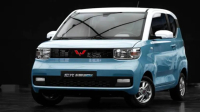 Search
Search

Gensol Engineering Ltd, an Ahmedabad-based solar company, is aiming to make an electric car for less than Rs 6 lakh, said a top executive.
The company on Friday told investors that it had signed a term sheet to acquire an US-based electric vehicle manufacturing start-up which will provide the technical expertise to develop an electric car. It did not reveal the name of the US company or the price it paid for the acquisition.
“We clearly believe that there is a need for a Rs. 5 lakh-6 lakh (on road price) electric vehicle,” said Anmol Singh Jaggi, Managing Director of Gensol Engineering. “The Indian EV manufacturing industry needs a disruption and that can only happen if an e-car could be sold for as less as Rs. 5 lakh. We have taken up that challenge.”
Currently, the cheapest electric car on Indian roads is the Tata Tigor which costs at least Rs 12.4 lakh. MG Motor India has just announced that it is rolling out a Rs. 10-12 lakh EV, while Hyundai is also said to be working on an affordable electric car.
Globally, the Wuling Hongguang Mini EV, which is sold in China and is priced at $4,200 (approximately Rs 3.15 lakh), is one of cheapest e-cars in the world. However, it is speculated but not officially confirmed if the same model will be sold here in India by MG Motor India (owned by SAIC Group) as the Rs. 10-12 lakh electric car.
In its statement to investors, Gensol said it aims to set up an R&D centre for technology development. It added that it is targeting to start production from the first quarter of 2023 from Pune with a capacity of 12,000 cars a year initially. The company is hiring at least 150 automobile engineers & designers for this venture and will be investing Rs. 250-400 crore in multiple phases, Jaggi told Moneycontrol.com.
“As the government is supporting this sector massively, we are hoping for a 100 percent localisation of the product,” added Jaggi.
According to Jaggi, the acquired company is still working on the prototype hatchback which will compete “head on with a compact hatchback like WagonR.”
“Apart from having a price tag of a typical petrol car, the e-car will be able ply up to 200kms on a single charge and can be fully charged in just 2 hours,” said Jaggi.
“It is not difficult to build an EV at a Rs 5-6 lakh price point. But I don’t think this would disrupt the car industry directly and immediately. However, this does show incumbents a path to take as most players seem to be focused on premium or mid-segment play EVs,” said the product strategy head at another EV startup on the condition of anonymity.
Electric cars currently make up for around one percent of sales in India’s passenger vehicle market. The government wants this to grow to 30 percent by 2030 and is offering incentives to manufacturers wanting to make EVs locally.
Companies such as Tata Motors and Mahindra & Mahindra are raising funds to build EV factories and automakers have lined up at least 20 launches of EVs till the end of 2023, according to market intelligence firm JATO Dynamics.
“Right now everyone is working on long-range high-speed cars. For the typical intra-city service-oriented use that can work on low-speeds and with a range of 125 kms there is good potential,” said Avik Chattopadhyay, auto industry veteran and co-founder of brand consulting firm Expereal.
Jaggi hopes his company will eventually ramp up output to one million cars annually, although he didn’t venture information on when this target will be reached.
“The charging configuration for the e-car is AC Type 2, which is as per Bharat standards and widely available. The company will also be providing a charger along with the car which can be plugged in any 15 A socket,” said Jaggi.
Currently there are only 1,742 public charging stations across the country. India needs about 400,000 charging stations to meet the requirements of two million EVs (including E2Ws) that could potentially ply on its roads by 2026, says a Grant Thornton report.
Shares of Gensol Engineering are trading 1.22 percent lower at Rs 622 on Monday after hitting a 52-week high on Friday following news of the company’s acquisition.
